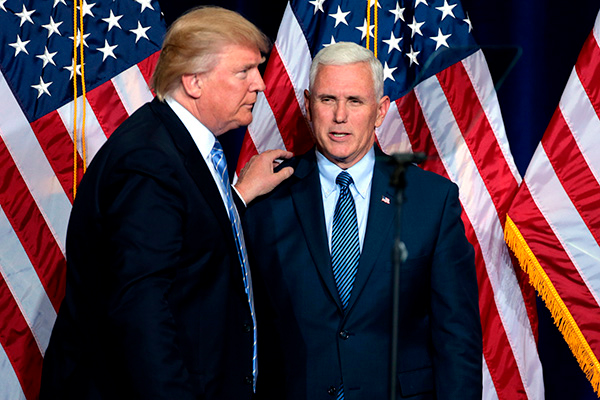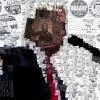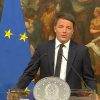
Following the 9/11 terrorist attacks in 2001, it was said that the world had changed because the US had changed. The world changes with each President. With Donald Trump’s election it could be said that the world has started to change before the new Republican President-elect has even moved into the White House. Ronald Reagan was the President of neoliberalism, George Bush senior presided over the end of the Cold War, Bill Clinton was the globalist, George Bush junior –who in theory was going to be the President of isolationism– became the leader of the unipolar and unilateral moment and Obama presided over the transition to the multipolar world. Trump may well be the President of a certain US withdrawal and bilateralisation. But the world will change less than before due to the rise of emerging states, with China at the forefront. The US still holds sway, although less than before. But if it ceases to be the ‘indispensable nation’, as the then Secretary of State, Madeleine Albright, called it in 1998, the US will lose influence.
Trump’s slogan, ‘Make America great again’ is misleading, because the US has never stopped being great, not only because of its power as a state –as an imperial republic, as Raymond Aron called it– but also because of the size and influence of some of its companies, such as Google, Apple and Amazon, although they now have competitors.
Perhaps the most significant thing about Trump’s ‘America First’ vision –as he has spelled out in YouTube videos (his use of social media again) and his interview with The New York Times (the foreign policy part was off the record, however) about what his first 100 days would be like– is that he will pull out of the Trans-Pacific Partnership (TPP) and replace it with bilateral accords with each country. Bilateralism may become his trademark. In part this is a response to his working and lower-middle class electorates, who want to see certain industries returning to the US (although he does not say that they will return, in fact, they have already started doing so, in a highly automated form, which does not mean many jobs). And although Trump deems the TPP ‘a potential disaster for the country’ when he disavows it, the US will lose support and credibility. Some of these countries are pivoting towards China, fearful of what Trump might entail for their trade and investment interests. Paradoxically, the great gainer from Trump’s victory, at least regionally, could be China. The confrontation with China, which Obama had handled prudently, could turn out to define the Trump presidency.
Trump wants an understanding with Russia, because one of his priorities is to root out the terrorism of Daesh (or Islamic State) and its territorial base in Iraq and Syria, and on this there is already a matching of interests. Rapprochement between Washington and Moscow on Syria was opposed by the Pentagon, something to which Obama gave unprecedented consent. Naturally this could have consequences for Europe if Daesh loses its territory, is transformed and its foreign fighters in the region return to their countries of origin or gains more local sympathisers in Europe. It is clear, however, that Trump has no intention of building states: ‘I don’t think we should be a nation-builder’ he said to the editorial team at The New York Times. But this is not something Obama has done either.
Trump proposes to transform NATO, forcing Europe to do more for its own defence. In fact, neutral Sweden is debating whether it should join the Atlantic Alliance, as suggested by one of governing coalition’s parties, the moderates (conservatives), in opposition to the lack of enthusiasm of the socialdemocratic Defence Minister Peter Hultqvist. But it is by no means clear that Europe as a whole, with the exception of Germany, has the desire or capacity in times of austerity to spend more on defence.
There are two agreements that Trump may renegotiate. The first is the nuclear deal with Iran, at a time when the stability of the Saudi regime is being questioned, Europe has lifted sanctions and many companies and governments are beating a path to Tehran’s door. A hard line from Trump may also curtail the chances of the reformist Rouhani being re-elected President of Iran in 2017. But with or without the US, Iran is once again exporting oil and importing technology. It could provide another possible cause of tension with Europe, and in this case with Russia and China too. The second could be the agreement with Cuba.
Trump’s first appointees have been hardliners, like General Michael Flynn as National Security Adviser, Michael Pompeo as head of the CIA and Senator Jeff Sessions as Attorney General. All of them have declared themselves in the past in favour of the torture of terrorist suspects, of mass surveillance (which previous Administrations have also been carrying out since such a thing became possible) and indefinite detention. Issues such as these may distance the Trump Administration from European values that baulk at torture, the death penalty and the ease with which civilians are able to buy arms, among others.
This represents not isolationism, but bilateralism, the demise of incipient multilateralism and a new international law that has been on hold for years, save for the recently-signed Paris agreement on climate change, the so-called COP21 (now COP22, after the meeting in Marrakech). For the time being Trump has left the question of what he is going to do on this issue hanging, something he needs to think about, although this will not prevent him from lifting Obama’s restriction on new oil and shale exploration in the US. Again, there may be a difference of values as regards Europe.
Trump will be more pragmatic, less based on values (which sometimes run up against the former principle) and will want the world to adjust the vision that it currently has of him. Nevertheless, the world, above all China, but Europe too, is creating its own parallel structures.
As Robert Kagan points out, starting from the premise that the US will cease to be the ‘indispensable nation’, Trump has little interest in Washington continuing to shoulder the burden for global order, although this may change once he starts to get the CIA’s daily briefings in the Oval Office –which to some extent he is already starting to receive– and a good deal more information. At least he will make good use of the principle attributed to the Obama Administration of ‘leading from behind’, in other words by remote control. It may be that Trump’s break with his predecessor will not be as drastic as expected. And, in the end, as occurred with Bush junior, it may be the events that must be dealt with and the manner of tackling them that determine the new presidency.


